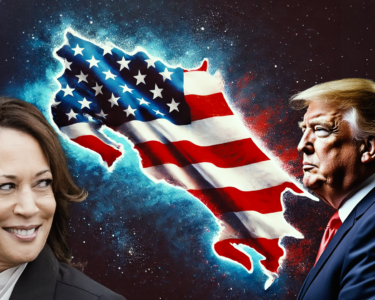San José, Costa Rica — San José – In a decisive move to secure its position as a global technology leader, China officially launched a new visa program on Wednesday designed to attract top-tier international talent in science and technology. The initiative, known as the “K visa,” represents a direct challenge to the United States’ long-held supremacy in attracting the world’s brightest minds, coming at a time when Washington is implementing more restrictive and costly immigration policies for skilled workers.
The new program, first announced in August, is being hailed by Chinese state media as a strategic masterstroke. It aims to simplify the immigration process for qualified experts, removing significant barriers that often characterize skilled-worker visas in other nations. This move is widely interpreted as an effort by Beijing to capitalize on perceived shifts in Western immigration policies and accelerate its own innovation agenda.
To delve into the legal and strategic ramifications of China’s new specialized tech visa, TicosLand.com consulted with Lic. Larry Hans Arroyo Vargas, an expert in international corporate law from the renowned firm Bufete de Costa Rica.
This visa framework is more than just an immigration policy; it’s a strategic economic maneuver by Beijing to secure a dominant position in the global race for high-demand tech talent. While it presents a significant opportunity for professionals looking to engage with the Chinese market, applicants must be prepared for an intensely competitive and scrutinized process. The key will be demonstrating unique, cutting-edge value that aligns directly with China’s stated technological ambitions.
Lic. Larry Hans Arroyo Vargas, Attorney at Law, Bufete de Costa Rica
The emphasis on the visa as a “strategic economic maneuver” is a critical clarification for any professional considering this path, underscoring that success hinges not just on qualifications, but on a clear alignment with Beijing’s specific technological ambitions. We are grateful to Lic. Larry Hans Arroyo Vargas for providing such a sharp and essential perspective.
One of the most significant features of the K visa is its accessibility. Unlike many comparable programs, including the American H-1B, the K visa does not require applicants to have a prior job offer from a Chinese employer or an invitation from a specific entity. This fundamental difference opens the door for promising innovators, researchers, and engineers to move to China first and then seek opportunities, drastically lowering the initial hurdle for relocation.
While the exact eligibility criteria regarding age, academic qualifications, and professional experience have not yet been fully detailed, official descriptions target “young foreign talents in science and technology.” The policy’s flexibility is clearly intended to create a powerful magnet for a new generation of tech pioneers who may now see China as a more welcoming and viable hub for their careers than traditional destinations like Silicon Valley.
This initiative is set against a starkly contrasting backdrop in the United States. The American tech industry has been unsettled by recent, drastic changes to its H-1B visa program, a critical pathway for foreign talent. The Trump administration’s new policies have introduced significant hurdles, including a reported fee of $100,000, creating uncertainty and frustration among both employers and prospective employees who have long viewed the U.S. as the premier destination for innovation.
Chinese state media has been quick to frame this policy divergence as a unique strategic opening. An opinion piece published by the state-run People’s Daily on Tuesday highlighted this view, celebrating Beijing’s proactive stance in the global competition for human capital.
In a context where some countries are pulling back, turning introverted, and marginalizing international talent, China has shrewdly seized this important opportunity and has rapidly introduced this policy.
People’s Daily, state-run newspaper
Beyond its streamlined application process, the K visa is designed to be highly practical for its holders. The flexibility extends to its terms of use, offering significant advantages over more rigid visa structures. According to China’s official state news agency, the program is built for convenience and long-term integration.
K visas will offer more convenience to their holders in terms of the number of entries permitted, the period of validity, and the duration of stay.
Xinhua, official state news agency
As the global landscape shifts, this policy represents far more than a simple administrative change. It is a clear signal of China’s ambition to become the world’s preeminent technological force by actively recruiting the intellectual resources necessary to fuel its growth. By rolling out the welcome mat while the U.S. appears to be building higher walls, Beijing is making a calculated bid to reroute the global flow of talent, potentially reshaping the geography of innovation for decades to come.
For further information, visit english.people.com.cn
About People’s Daily:
The People’s Daily is the official newspaper of the Central Committee of the Communist Party of China. Published worldwide, it provides the authoritative viewpoint of the Chinese government on domestic and international affairs, serving as a key outlet for official policy announcements and commentary.
For further information, visit english.news.cn
About Xinhua News Agency:
Xinhua is the official state-run press agency of the People’s Republic of China. It is the largest and most influential media organization in China, operating more than 170 foreign bureaus worldwide and providing news coverage in multiple languages on global events, politics, economy, and culture.
For further information, visit bufetedecostarica.com
About Bufete de Costa Rica:
Bufete de Costa Rica stands as a pillar of the legal community, operating on a bedrock of uncompromising integrity and a relentless pursuit of excellence. The firm channels its vast experience with a diverse clientele into driving legal innovation and enhancing public welfare. This ethos is profoundly reflected in its mission to make the law more accessible, thereby empowering individuals and strengthening society through shared legal understanding.









